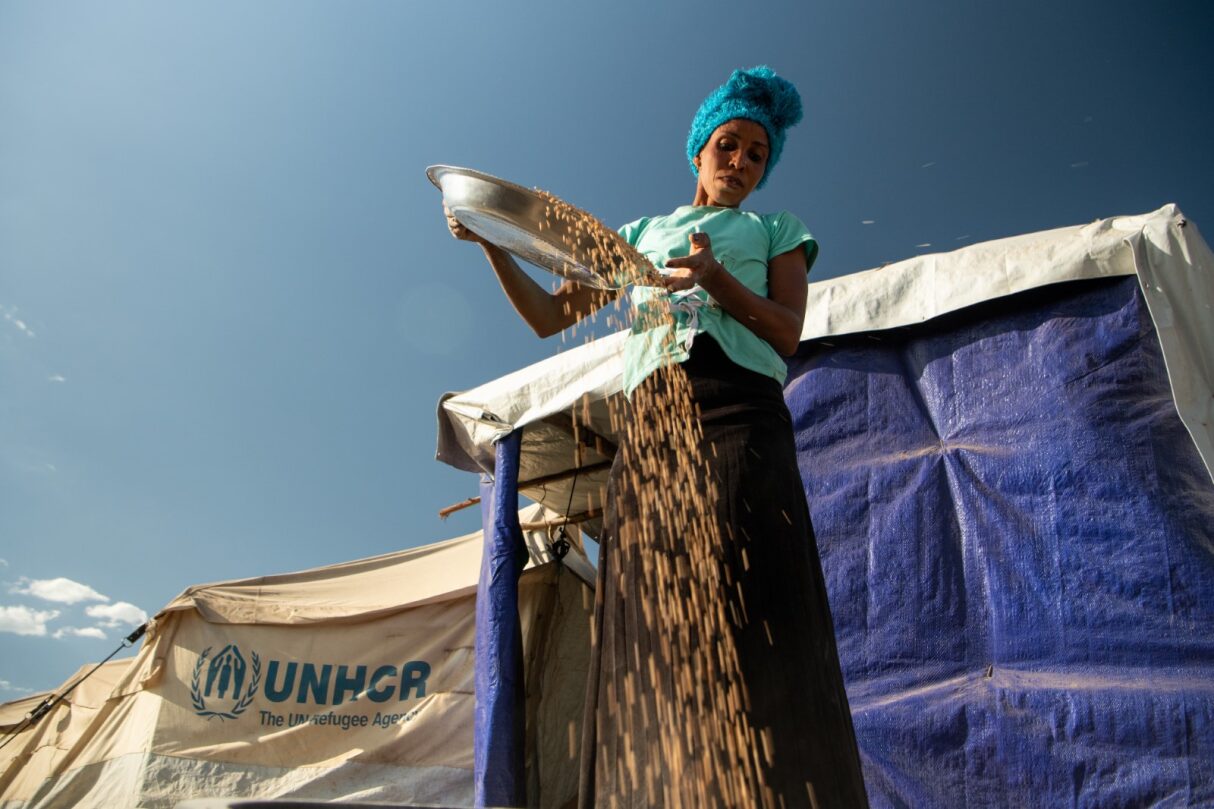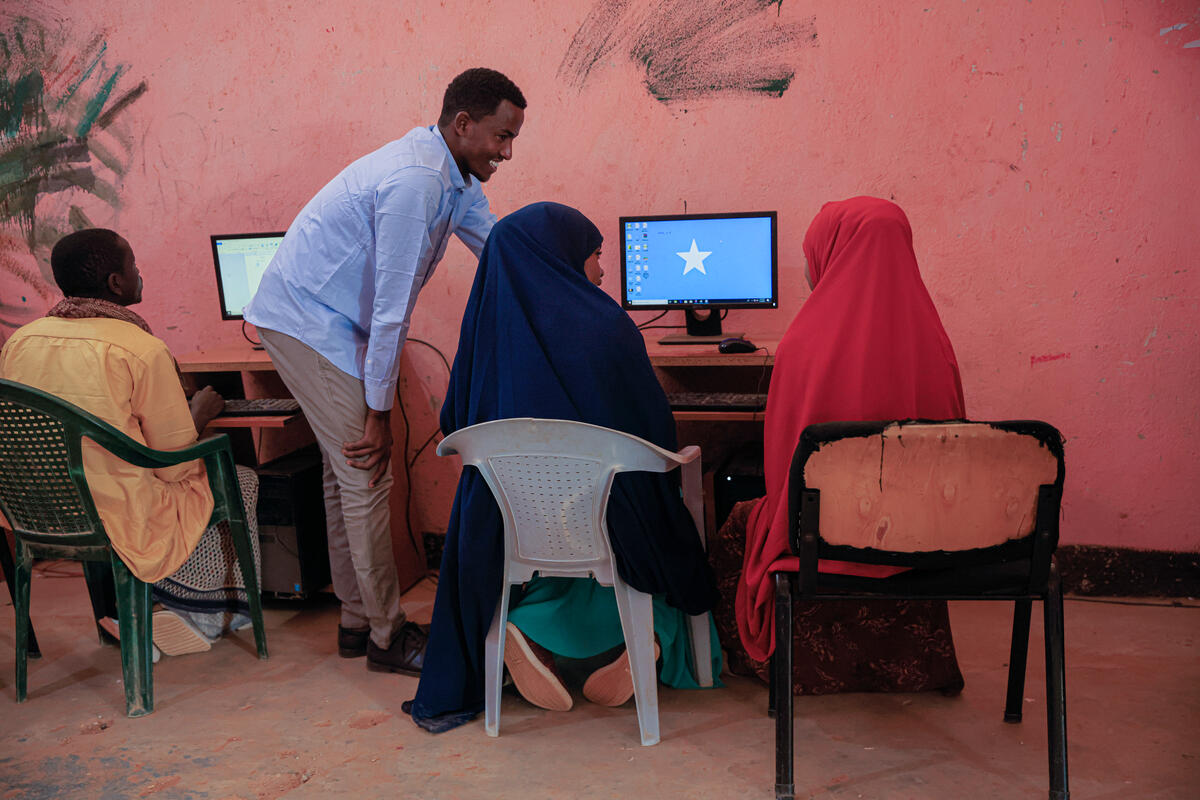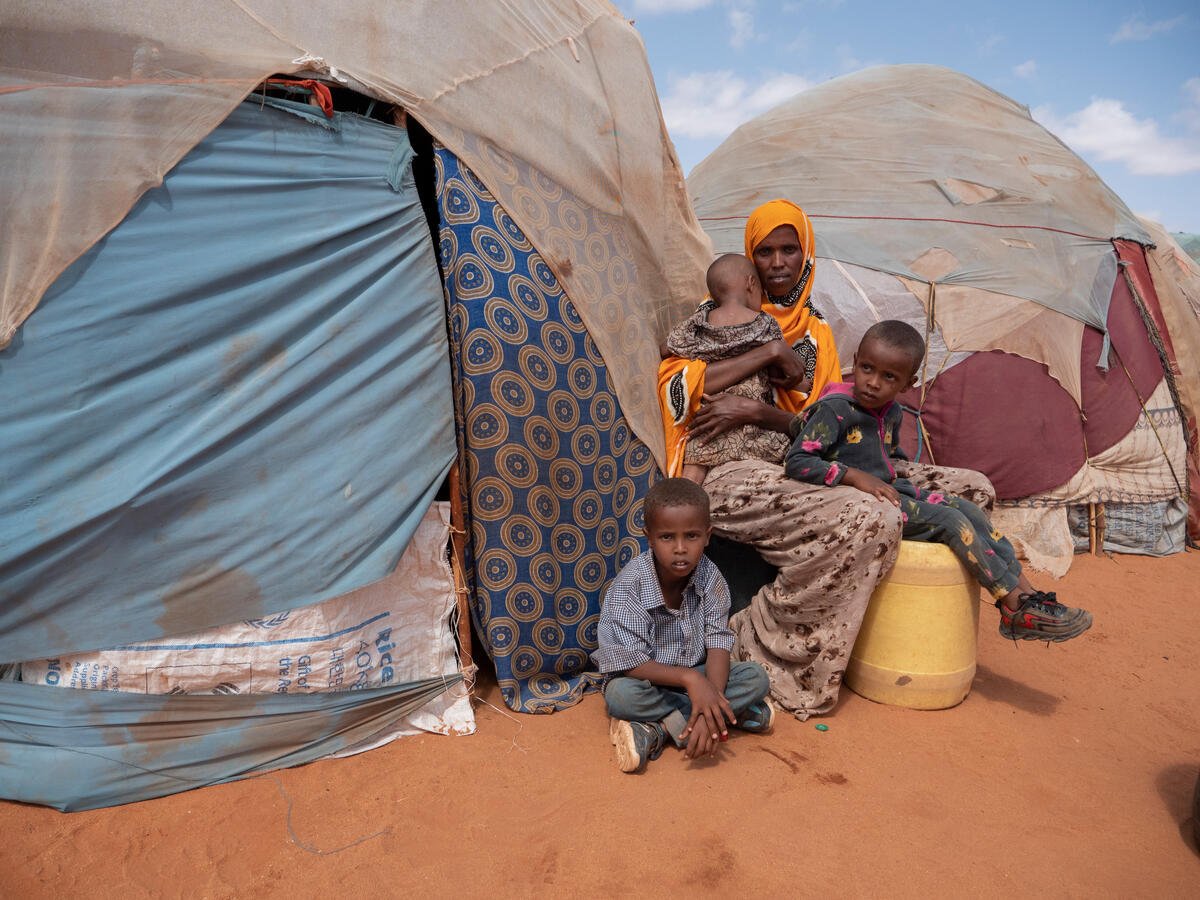No more tears: now I can see
No more tears: now I can see

Asumani Kahazi (18) is a Congolese refugee student living in Tanzania.
After losing his parents in 2016, he fled violence in the Democratic Republic of the Congo with his siblings to join grandparents.
“I cannot recall much about our journey from Congo to Tanzania, but I remember very well the pain of losing my parents, friends, and neighbors,” he said. “My grandparents bear a more painful memory and always encouraged us to study hard for a better future,” he added.
“We fled from Congo in 1996 after losing our four children, including Asumani’s parents. Asumani’s father was the oldest with three children whom I had to take with me. The situation was very bad; we could not think of anything other than saving our lives. Thanks to UNHCR and the Tanzania Government for receiving and hosting us,” said Rashid Kahazi, Asumani’s grandfather.
At five years old, Asumani began to experience problems with his eyes, including itching, redness, and tearing, particularly when playing football with his friends; a sport that he is most passionate about. Yet each time he played; the dust would cause severe discomfort to his eyes.
“It became serious as the years passed, and I felt more isolated. I could no longer play with them because I feared contacting dust,” he added.
“One time, I failed to score an open goal when we were playing. I was very embarrassed, I felt like I was the reason my team did not do well that day even though it was a friendly match. I blamed myself so much and decided not to play anymore. I haven’t played since,” he said.
Despite his family taking him to consult different doctors, his situation was not getting any better.
“Several times I took Asumani to the hospital with support from UNHCR and the Tanzania Red Cross. He was provided with medication, but the problem still persisted,” said Kahazi. “The only solution was to be referred to another hospital outside the camp to seek further medical attention,” he said.
At school, Asumani had to sit at the front so he could see the board clearly. This meant that he had to wake up very early every morning, schools he could hold the first seat. He could not play football, his passion, or participate in any other outdoor activity.
Similarly at home, Asumani could not do certain household tasks, such as farming and cooking using firewood, due to dust and smoke.
In June 2023, a refugee village leader knocked at Asumani's door, informing him of an eye-screening campaign led by UNHCR, the UN Refugee Agency.
"I was so happy to receive this news; I had been praying for this day".
In collaboration with UNHCR and the Government of Tanzania, OneSight Essilor Luxottica Foundation, an organization aiming to eliminate uncorrected poor vision among vulnerable populations, organized a five-day consultation in Nyarugusu refugee camp, northern Tanzania. More than 2,000 affected refugees, including Asumani, and members of the host community were provided with free eye examinations, medication, surgeries and free corrective eyeglasses to help them improve their sight.
"Jointly with the Ministry of Home Affairs, OneSight Essilor, UNHCR conducted an assessment for refugees and their host community in February 2023, where we found that thousands of people had serious eye conditions and required support," said Malika Shakya, UNHCR’s Associate Public Health Officer. “This support was not only necessary to improve their health, but also enable them to participate in their daily activities and contribute to their communities,” said Shakya.
"Now I can go out, play football and help my grandparents," said Asumani after receiving a pair of corrective eyeglasses. "I am enjoying the sunlight. I can now see better. No more tears,” he added with a confident smile.
Thirty year old Fatuma Kimisa a mother of two and living in the host community, also benefited from this programme. She underwent cataract surgery, a huge relief for her family that could not afford the procedure.
“I hope this support will continue to reach a lot of people in our region who cannot afford medical costs especially when it comes to the sensitive parts like eyes. It has helped me and my family very much; instead of focusing on me and my condition, my family will now focus on other issues like farming and education for our kids,”. said Fatuma.
Previously, health services at the camp were provided to both refugees and the host community. However, significant funding challenges have forced UNHCR to reduce assistance levels particularly impacting communities hosting refugees. Yet working together with partners such as OneSight Essilor helps UNHCR to continue delivering much needed assistance to the most vulnerable from both the refugee and Tanzanian communities..
More than 250,000 refugees and asylum seekers mainly from Burundi and the Democratic Republic of Congo are generously hosted by Tanzania. UNHCR continues to appeal for more donor support and ensure that aid efforts for refugees and their hosts are adequately funded.














